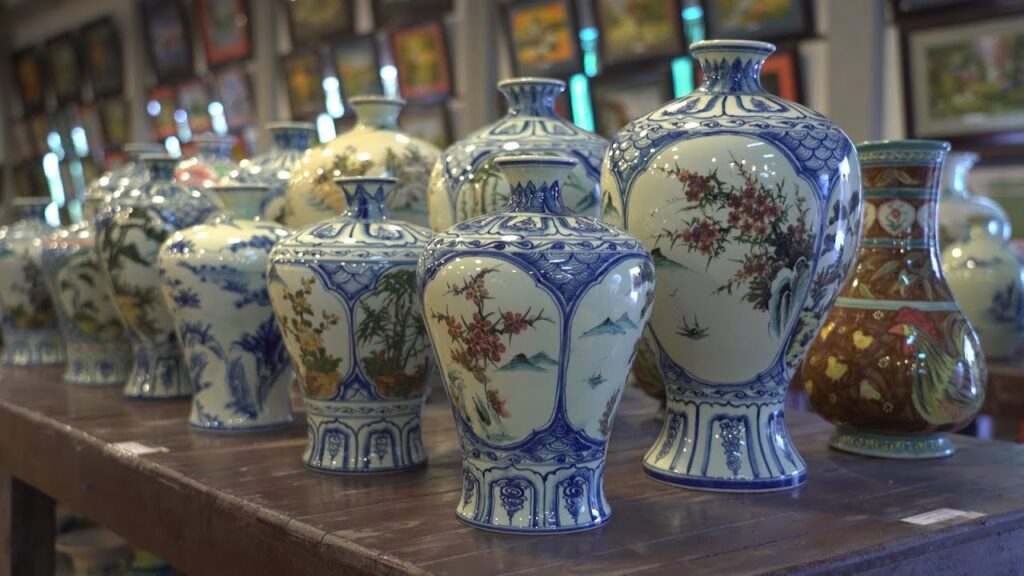Among the many treasures of Vietnam’s cultural heritage, Vietnam pottery stands out as one of the most enduring and expressive art forms. From rustic handmade clay jars in ancient villages to intricately glazed vases found in royal palaces and international museums, Vietnamese pottery tells the story of a people shaped by their land, history, and spirit.
Visitors to Vietnam often find themselves enchanted by the beauty and simplicity of pottery pieces—whether it’s a teapot in a Hanoi café or a garden pot in a Hoi An boutique. But behind each item lies centuries of tradition, craftsmanship, and creativity. This article will guide you through the rich legacy of Vietnam pottery, its historical roots, regional styles, and why it continues to captivate people around the world.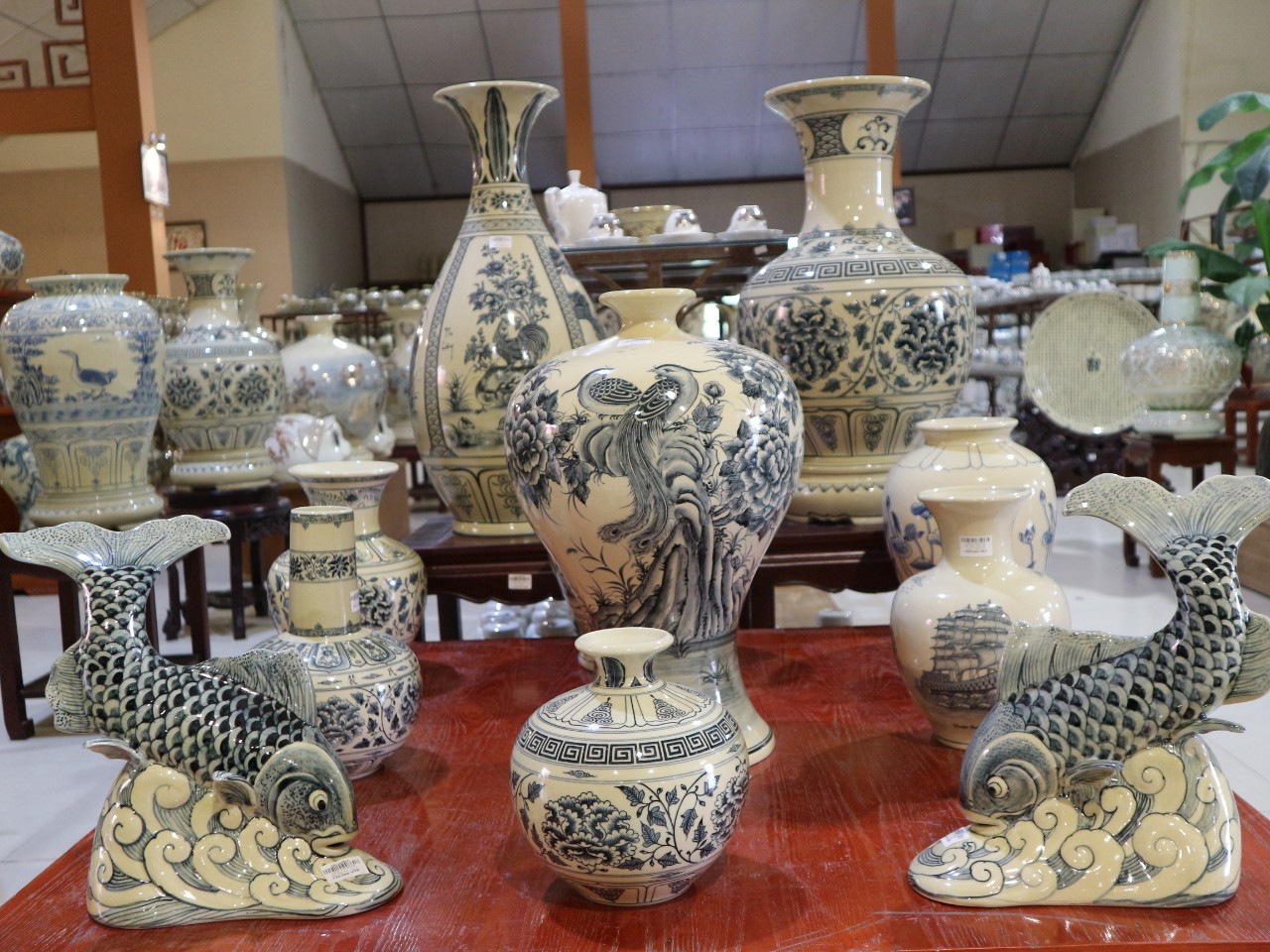
A Brief History of Vietnam Pottery
Pottery-making in Vietnam has a history spanning over 10,000 years, with archaeological evidence pointing to its origins in the late Hoabinhian and Bac Son cultures. The earliest Vietnamese pottery pieces were made by hand using simple tools and fired in open-air kilns.
1st–10th centuries CE: Influence from China
With the spread of Han Chinese influence, Vietnamese potters adopted new techniques: the potter’s wheel, high-temperature kilns, and early glazing methods. However, instead of simply copying Chinese styles, Vietnamese artisans adapted these skills to their own aesthetics, materials, and spiritual beliefs—leading to the creation of distinctive local ware.
11th–14th centuries: The Golden Age
During the Ly and Tran Dynasties, Vietnam entered a golden age of ceramic artistry. This period saw the development of several iconic styles, including:
- Celadon (green jade) glaze
- White glaze with brown floral motifs (Hoa Nau)
- High-fired stoneware with detailed carving
These styles featured Buddhist, Taoist, and folk symbols, reflecting Vietnam’s spiritual and cultural richness.
15th century: Global Trade and Export
Vietnam pottery reached international markets during the Le Dynasty, particularly through ports like Vân Đồn and Hội An. Vietnamese ceramics were shipped to Japan, Southeast Asia, the Middle East, and even Europe. The discovery of a 15th-century shipwreck off the coast of Cu Lao Cham Island, containing over 240,000 ceramic items, is clear proof of Vietnam’s global ceramic trade.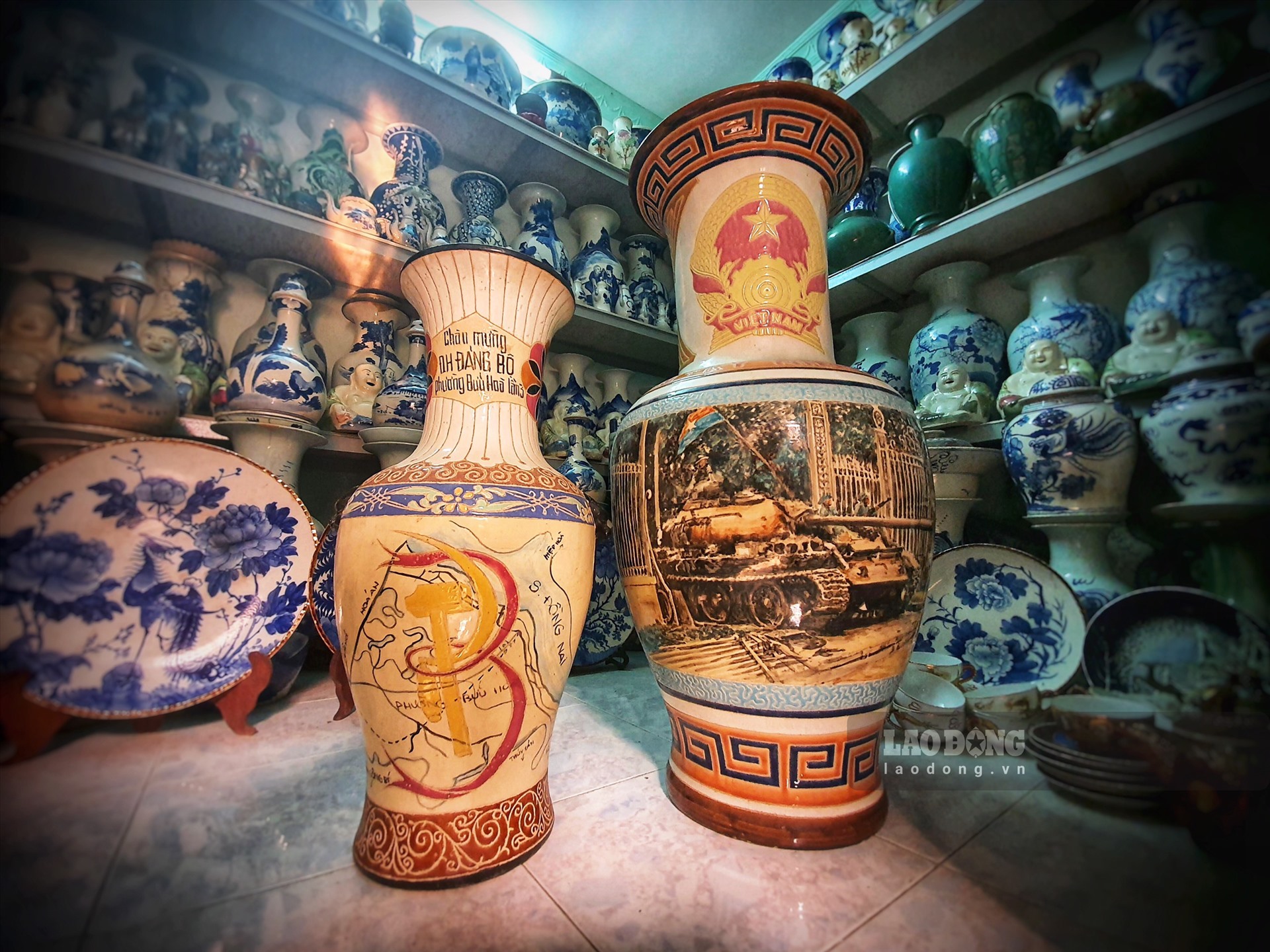
What Makes Vietnam Pottery Special?
Foreign collectors, designers, and travelers love Vietnam pottery for good reasons:
1. Diverse Materials and Styles
Vietnam’s geographical diversity has led to many regional ceramic styles, each using different types of local clay. From the red clay in the South to kaolin-rich white clay in the North, the materials shape the final product in color, texture, and strength.
2. Handmade Craftsmanship
Most Vietnamese pottery is handmade using traditional methods passed down through generations. This includes wheel-throwing, hand-molding, carving, and wood-fired kilns. Every piece carries the fingerprint of the artisan, making it unique.
3. Cultural Symbolism
Pottery in Vietnam is deeply symbolic. Common designs include:
- Lotus flowers: purity and enlightenment
- Dragons and phoenixes: power and prosperity
- Fish and waves: abundance and harmony
- Clouds and geometric patterns: balance and nature
These motifs give Vietnam pottery both spiritual and aesthetic depth.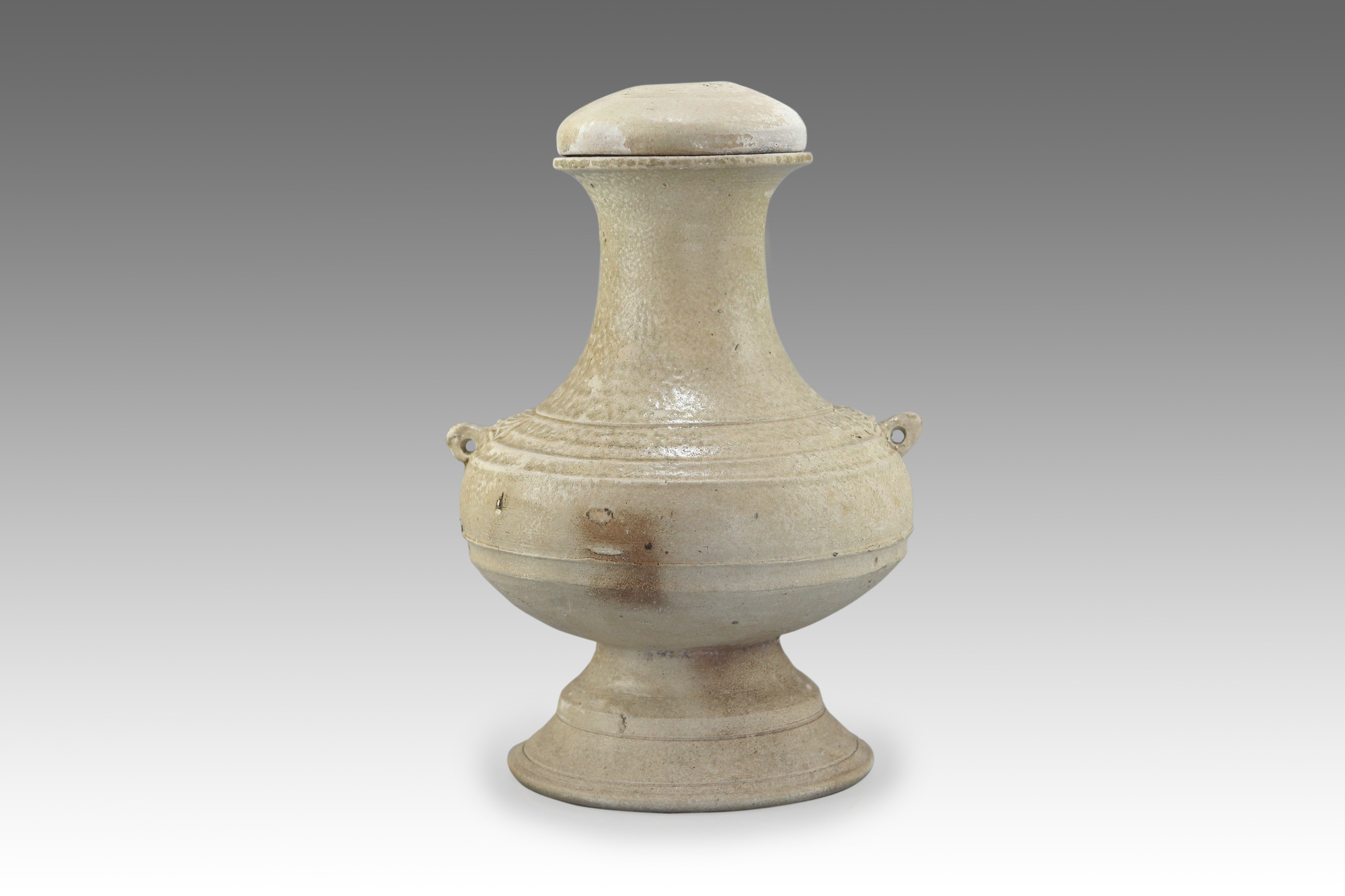
Top Pottery Villages in Vietnam
From North to South, Vietnam is home to several famous pottery villages where artisans continue to produce both traditional and modern ceramics. Here are the most notable ones that you should explore.
1. Bat Trang Pottery Village (Hanoi)
Bat Trang, located just 13 km from Hanoi, is the most famous ceramic village in Vietnam. With a history of over 600 years, Bat Trang is known for:
- Thick-bodied clay products
- Crackled glaze (men ran) and celadon finishes
- Blue-and-white porcelain inspired by Chinese Ming styles
- A mix of functional and decorative items: plates, bowls, teapots, statues
Today, Bat Trang is a popular destination for visitors who want to shop for ceramics, try making pottery, or learn about traditional kilns.
2. Chu Dau Pottery Village (Hai Duong)
Chu Dau pottery originated in the 14th century and was a key export during the Le Dynasty. Its famous characteristics include:
- White porcelain with cobalt blue, green, red, and yellow underglaze painting
- Buddhist and Confucian imagery
- Precise brushwork and detailed compositions
Chu Dau pieces are displayed in international museums in Tokyo, Istanbul, and Paris. Today, the village is experiencing a revival, with artisans faithfully recreating ancient designs for modern collectors.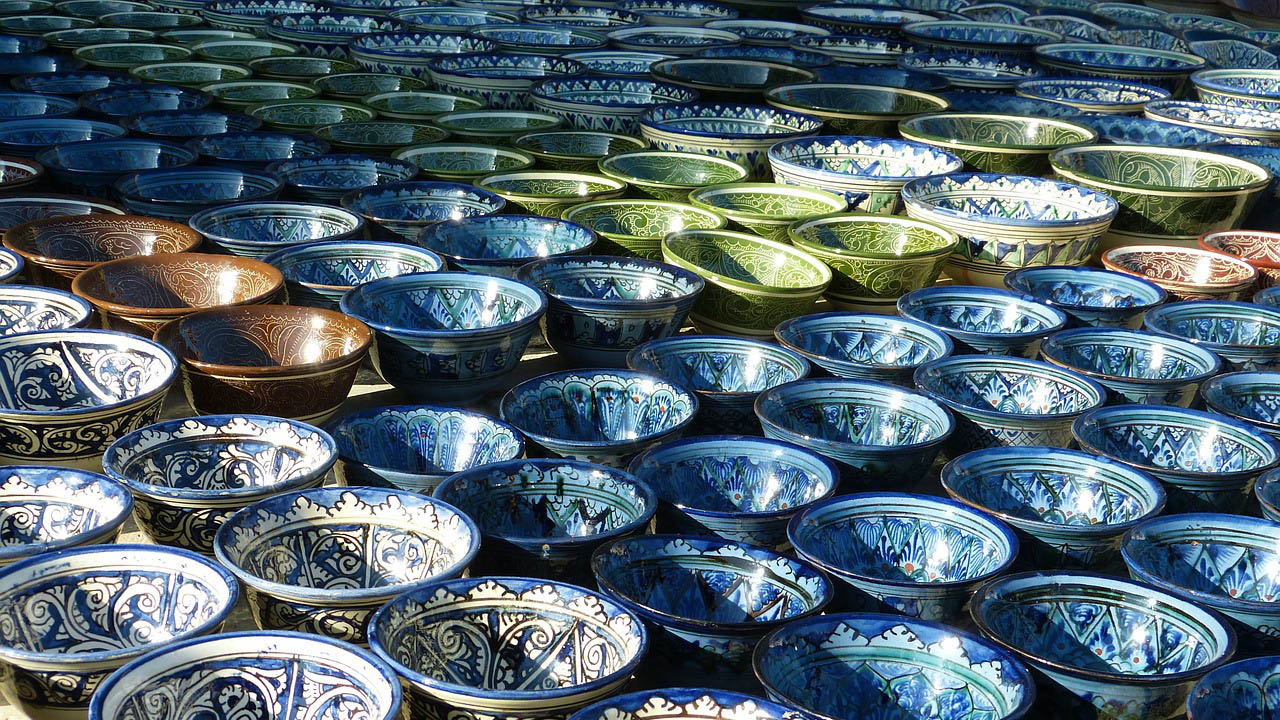
3. Phu Lang Pottery (Bac Ninh Province)
A lesser-known gem, Phu Lang pottery is admired for its earthy and rustic aesthetics. Known for:
- Eel-skin brown glazes
- Handmade jars, pots, and vases
- Decorative carving in bold relief (chạm bong)
Phu Lang retains a rural charm, and visiting this village offers a peek into authentic northern Vietnamese countryside life.
4. Thanh Ha Pottery (Hoi An, Central Vietnam)
Located just outside the UNESCO city of Hoi An, Thanh Ha has been making pottery for over 500 years. Its products are light, simple, and made from Thu Bon River clay.
Key features:
- Red-brown clay pottery
- Light, porous texture
- Products like pots, flower vases, and figurines
- Traditional kick wheels and open-air kilns
The Thanh Ha Pottery Park and Museum of Trade Ceramics are worth a visit if you’re exploring Hoi An.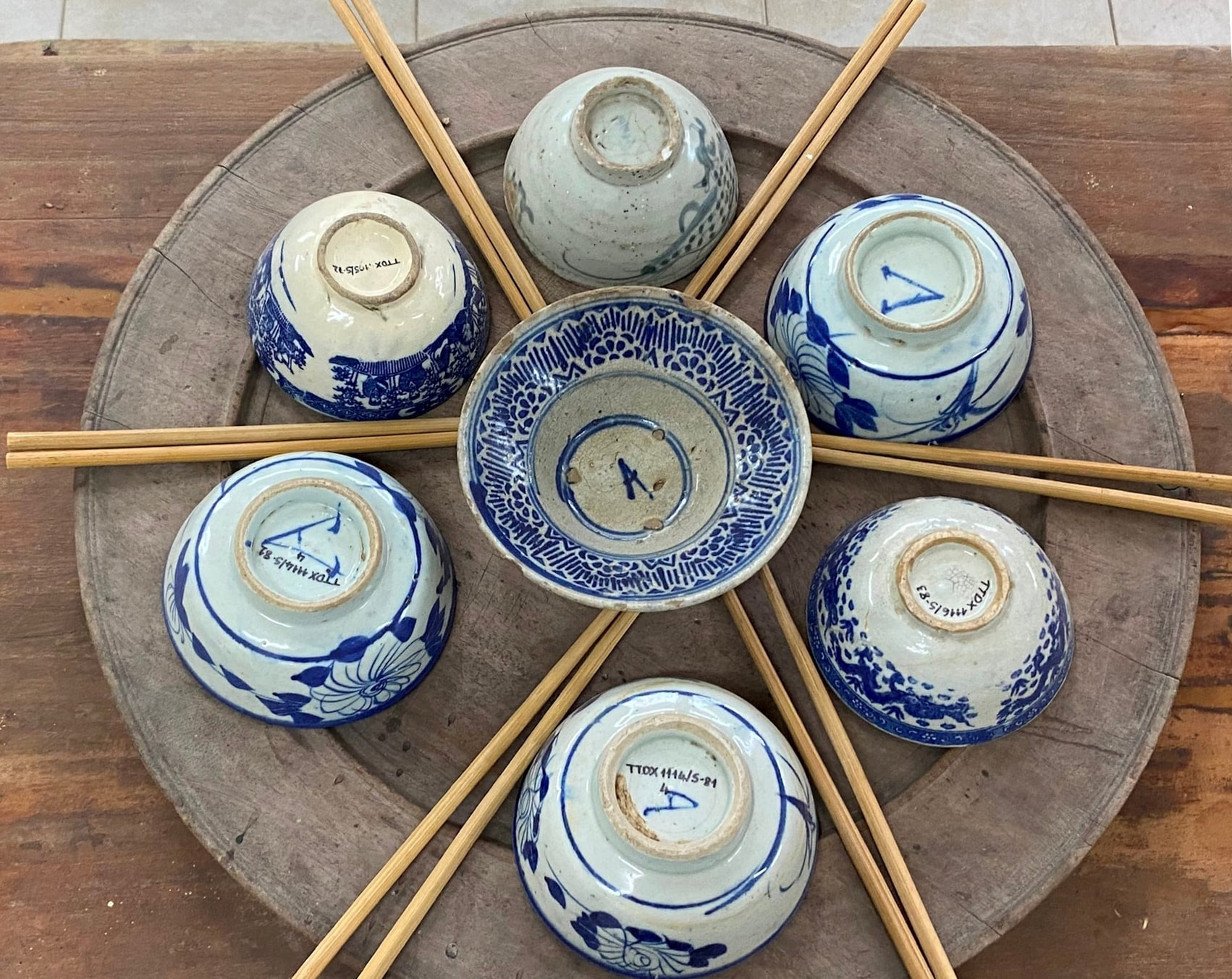
5. Bau Truc Pottery (Ninh Thuan Province)
This is one of Southeast Asia’s oldest pottery villages, home to the Chăm people, an ethnic group with Hindu and Buddhist influences.
What makes Bau Truc unique:
- No potter’s wheel; everything is hand-built
- Outdoor firing using wood and straw
- No glaze—colors come from natural smoke and fire
- Inspired by Cham legends and motifs
Bau Truc pottery is raw, tactile, and deeply spiritual. Many of the pieces are considered ceramic art rather than functional ware.
6. Vinh Long Pottery (Mekong Delta)
Known for large-scale production of red clay pottery, Vinh Long is Vietnam’s center for terracotta.
Key traits:
- Large jars, pots, and planters
- Fired at 900°C, giving a burnt red tone
- Used widely in landscaping and home décor
While more industrial, Vinh Long still preserves traditional kiln techniques and is an important part of Vietnam pottery’s economic landscape.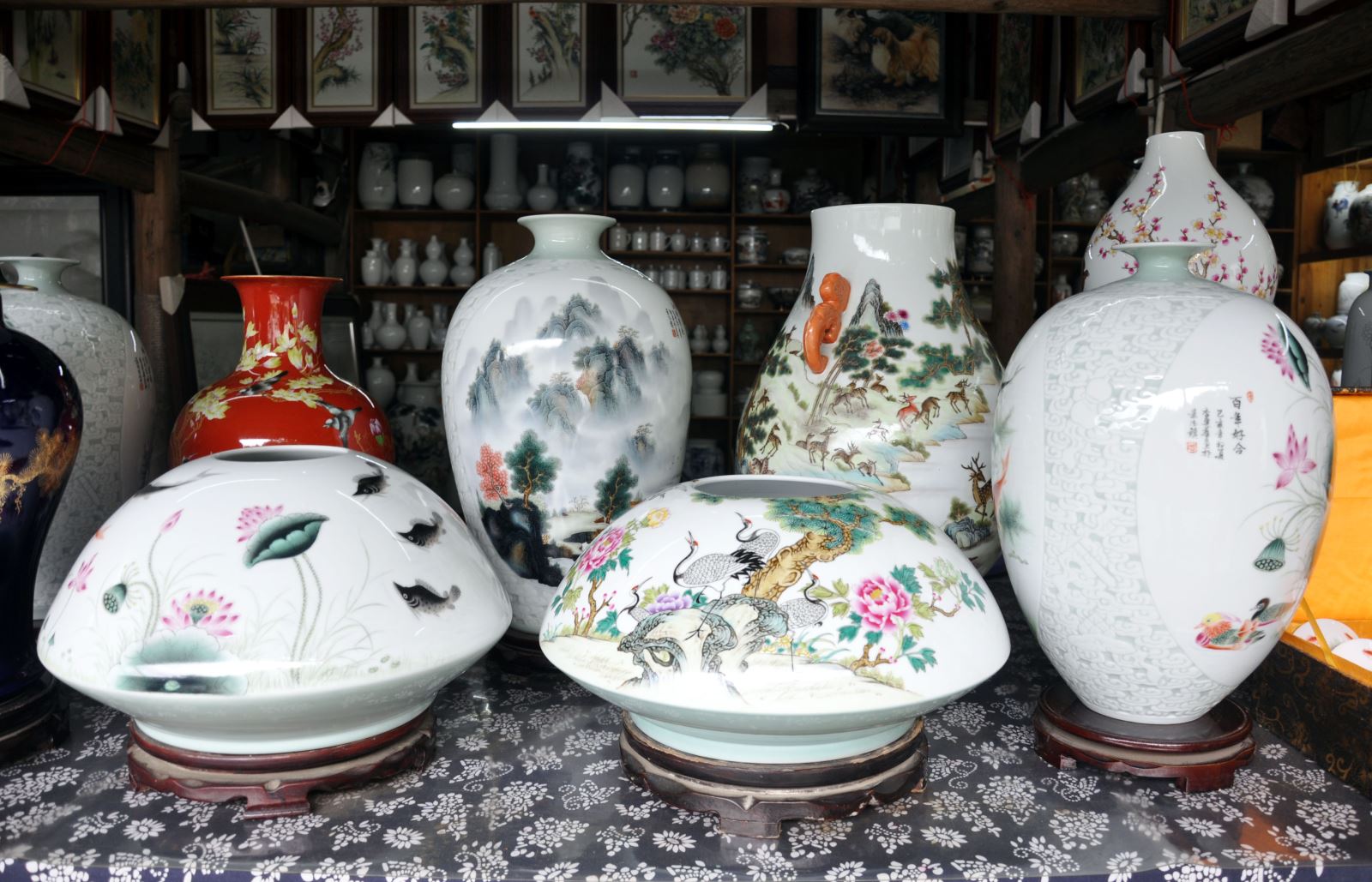
Modern Vietnam Pottery: Blending Heritage with Design
Today, a new generation of Vietnamese artists and entrepreneurs is bringing Vietnam pottery into contemporary homes and international markets. You’ll find:
- Designer ceramics in minimalist styles
- Artisan brands exporting globally
- Custom tableware for luxury resorts and restaurants
- Collaborations with Japanese and European studios
These modern adaptations keep the tradition alive while meeting global design standards. Whether you’re a collector, interior designer, or simply a traveler, Vietnam pottery offers endless inspiration.
Where to Buy Authentic Vietnam Pottery
Looking to take a piece of Vietnam home? Here are some trusted places to shop:
In Vietnam:
- Bat Trang Village – wide selection and hands-on workshops
- Hanoi Old Quarter (Hang Gai, Hang Bong) – galleries and boutiques
- Hoi An Ancient Town – Thanh Ha pottery shops
- Ho Chi Minh City (District 1, Le Loi Street) – art galleries and showrooms
Online & International:
- Brands like Minh Long, H&H Ceramics, and Authentique Home offer international shipping
- Etsy, eBay, and specialty ceramic shops in Tokyo, London, and Paris often stock Vietnamese pieces
Tip: Look for hand-signed or imperfect pieces. Machine-made pottery tends to be overly symmetrical and lacks personality.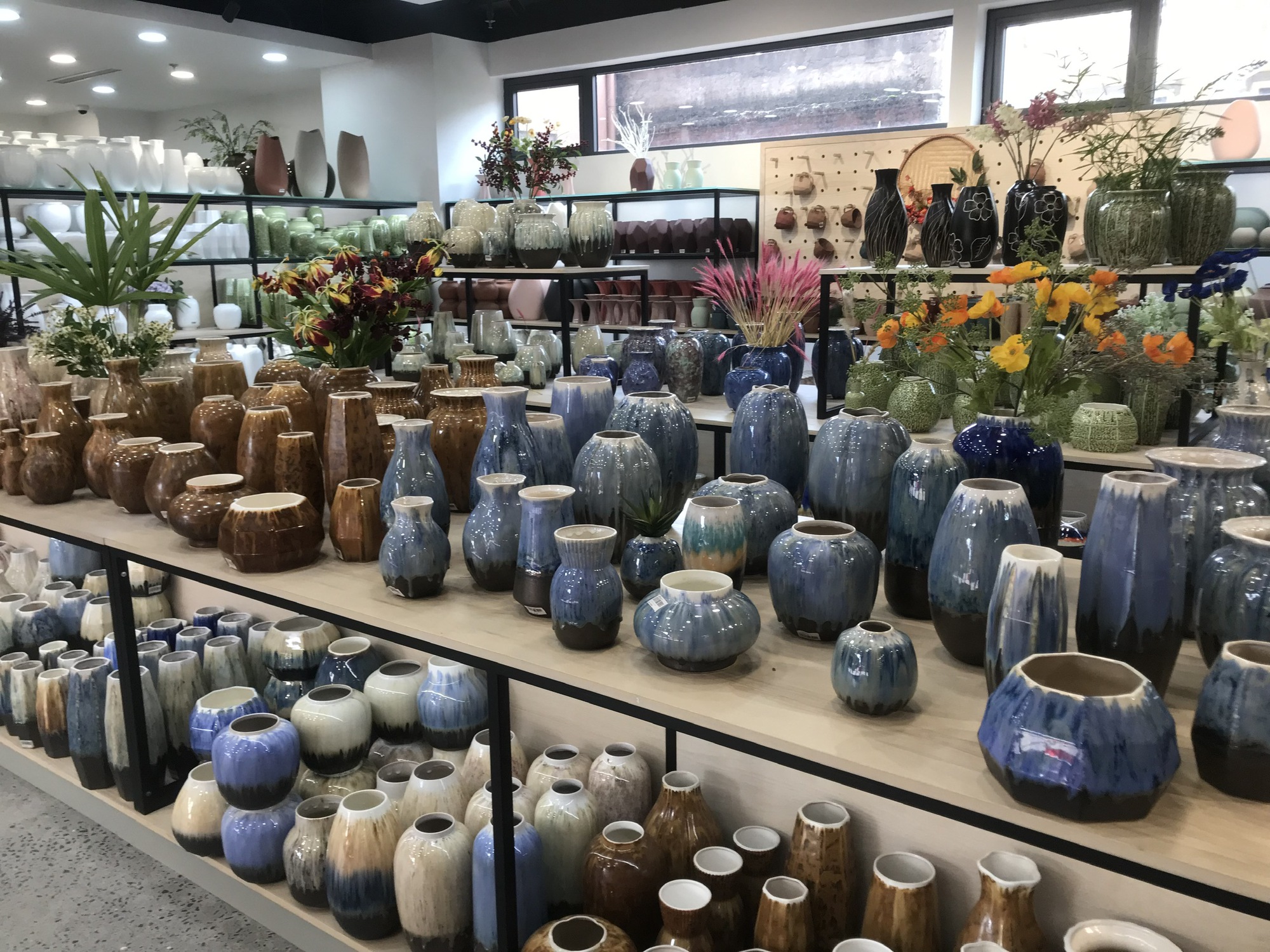
Cultural Significance of Pottery in Vietnam
In Vietnam, pottery isn’t just decoration—it has practical, spiritual, and social importance:
- Ancestral altars often feature ceramic incense burners
- Pagodas are decorated with dragon-motif tiles
- Ceramic jars are used in traditional food storage and fermentation
- Wedding gifts often include teapots and vases as symbols of prosperity
Understanding this context gives deeper meaning to every piece you purchase or admire.
Vietnam Pottery – A Clay Connection to Culture
Vietnam pottery is more than just clay and glaze—it’s a vessel of heritage, identity, and soul. Whether handcrafted in a rural village or designed for a luxury hotel, each item reflects generations of artistry and a nation’s resilience.
For foreign visitors, discovering Vietnamese pottery is a powerful way to connect with the country’s rich traditions and support local artisans. From ancient celadon to modern minimalism, there’s a piece of Vietnam for every taste with Vietnam Culture.
See more post: Vietnam lacquerware: The timeless art that defines Vietnamese elegance

